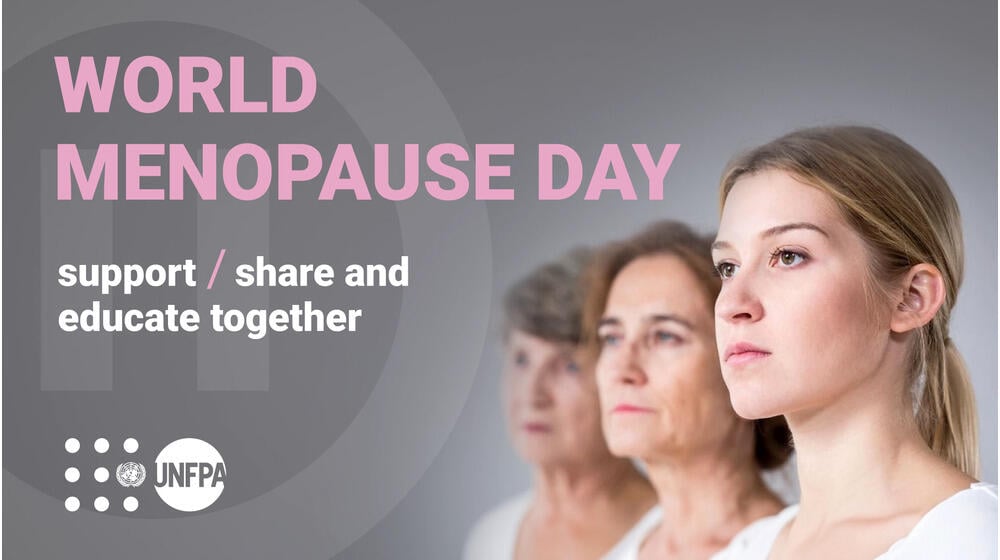World Menopause Day is observed every year on October 18 to discuss the challenges and changes that women experience during this natural phase of life. Although menopause is an inevitable physiological process, many aspects of it are insufficiently understood or even misunderstood. In this article, we present 10 things you might not know about menopause and how it affects women's quality of life.
10 Things You Didn't Know About Menopause and Its Impact
Menopause is a transition, not an abrupt event.
Menopause is an inevitable and natural stage in every woman’s life, but it should not be seen as an obstacle. It doesn't happen overnight. It begins with a stage called perimenopause, which can last for several years, during which estrogen levels fluctuate. During this time, women may experience early symptoms such as hot flashes or mood swings.
The age of menopause varies.
While menopause typically occurs between the ages of 45 and 55, it can happen earlier or later. Early menopause, occurring before the age of 40, can be caused by genetic factors, certain diseases, or medical interventions such as hysterectomy.
1 in 5 women in the global workforce are going through menopause.
More than 20% of professionally active women are over 45 and experience menopause symptoms in the workplace. However, only 14% of companies have specific policies to support women during this period.
Women worldwide are calling for menopause-friendly workplace policies.
Globally, women are increasingly demanding the introduction of menopause-friendly policies, such as flexible working hours, access to medical services, or psychological support. Such measures can significantly improve women's well-being at work and contribute to a more inclusive society. With the right support, education, and policies, women can successfully navigate this transition while continuing to make valuable contributions at home, at work, and in society.
Menopause symptoms are more complex than just hot flashes.
In addition to well-known symptoms like hot flashes, women may experience a wide range of symptoms such as insomnia, anxiety, depression, reduced libido, vaginal dryness, and weight gain. These symptoms can seriously affect women's quality of life and well-being.
Health risks increase after menopause.
As estrogen levels drop, women become more susceptible to certain health problems, including cardiovascular diseases, osteoporosis, and diabetes. It is important to adopt a healthy lifestyle and stay vigilant about regular medical check-ups.
Menopause also affects mental health.
Hormonal changes during menopause can impact women's mental health. They may experience anxiety, depression, and memory issues. Psychological support and an understanding environment are essential in managing these challenges.
Balanced diet and exercise can alleviate symptoms.
A healthy lifestyle can help alleviate menopause symptoms. A diet rich in calcium and vitamin D, along with regular physical exercise, helps maintain bone health and overall well-being.
Hormone replacement therapy can help, but it’s not for everyone.
Hormone replacement therapy (HRT) is an option for many women who suffer from severe menopause symptoms. However, HRT is not suitable for everyone and may carry risks, such as increasing the likelihood of breast cancer or cardiovascular disease. Each woman should consult with her doctor to find the best solution for her.
Menopause is not the end of femininity or sexual life.
Although menopause can affect sexual life due to hormonal changes, it doesn't mean the end of intimacy or femininity. There are solutions such as lubricants and therapies that can improve women’s sexual life during this period. World Menopause Day reminds us of the importance of understanding and supporting women throughout their lives.
Facts and Figures:
- In 2021, women aged 50 and over represented 26% of the total population of women and girls worldwide, up from 22% a decade earlier, according to a UN study.
- Women's participation in the global workforce was approximately 47.4% in 2022, with about 740 million women working in the informal economy without access to social protections such as healthcare and pensions, according to ILOSTAT.
- Despite growing recognition of the impact of menopause on women's productivity and well-being, only 14% of workplaces worldwide have specific policies regulating menopause, according to Bupa UK.



